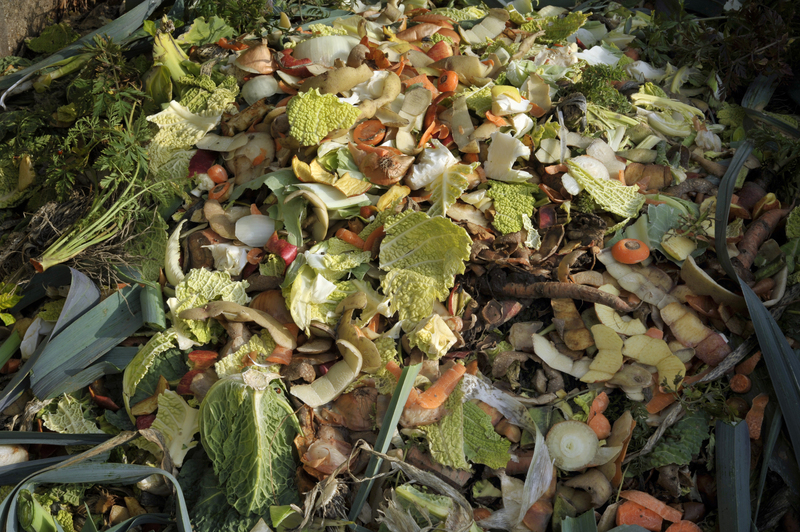Inspiring Student Participation in School Recycling: Creating a Greener Future
Recycling in schools has become more important than ever as environmental challenges continue to grow. Encouraging students to recycle, however, can be a daunting task without the right strategies. It's not just about placing bins in the hallways--it's about inspiring student participation in school recycling by fostering awareness, empowerment, and a sense of responsibility. This article explores effective methods, benefits, and creative ideas that schools can implement to boost student involvement in their recycling efforts.

Why Student Engagement Matters for School Recycling Programs
Involving students in school recycling programs goes beyond reducing waste. It's about building lifelong habits, nurturing future environmental leaders, and creating a positive impact on the local and global ecosystems. Students represent the next generation of changemakers, making their participation essential for sustainable success. Inspiring student participation in school recycling assures the program's effectiveness, visibility, and growth.
- Promotes environmental responsibility: Students learn the impact of recycling and the importance of conservation.
- Fosters teamwork and leadership: Collaborative recycling projects develop leadership, organization, and social skills.
- Creates a culture of sustainability: Recyclable habits extend from classrooms to homes and communities.
- Reduces school waste: Active student participation cuts down waste sent to landfills, saving money and resources.
Key Strategies to Inspire Student Participation in School Recycling
1. Education and Awareness: The Foundation of Student Recycling Involvement
The first step in encouraging student involvement in school recycling is effective education. Knowledge empowers students to make informed choices, understand their impact, and become advocates for their cause.
- Integrate recycling into the curriculum: Include recycling topics in science, geography, and social studies lessons. Teach the recycling process, environmental impacts of waste, and benefits of resource conservation.
- Classroom discussions: Initiate open dialogues about why recycling matters. Use real-world examples and statistics.
- Guest speakers and workshops: Invite recycling experts or local environmental organizations to run engaging sessions for students.
- Visual aids and infographics: Place posters, charts, and creative displays around the school to continuously remind students of the importance of recycling.
*Tip: Highlight inspiring stories of young environmental activists to motivate students.*
2. Accessible and Attractive Recycling Stations
Easy access to clearly marked recycling bins is essential for encouraging student recycling participation at school. Well-placed recycling stations not only act as reminders but also make participation seamless and enjoyable.
- Distinct labels and colors: Use color coding and big, bold signs to differentiate between recycling, compost, and landfill bins.
- Student-designed signage: Organize competitions where students create fun, educational signs for bins, promoting ownership and creativity.
- Strategic placement: Place bins in high-traffic areas--cafeterias, classrooms, hallways, and common rooms.
- Cleanliness and maintenance: Keep stations clean and regularly emptied to prevent overflow or contamination.
*Did you know? Schools with well-organized recycling spots see up to 35% more student engagement!*
3. Student-Led Recycling Initiatives
One of the most effective ways to increase mindshare and participation is to give students a leadership role in the recycling program. When students are put in the driver's seat, they feel valued, engaged, and inspired to motivate peers.
- Green teams or eco-clubs: Set up student groups responsible for managing and promoting school recycling programs.
- Project-based learning: Let students design and run their own recycling campaigns, competitions, or art projects using recyclable materials.
- Ambassador programs: Appoint 'Recycling Ambassadors' from each class to champion recycling and mentor others.
- Student audits: Allow student groups to periodically assess recycling habits and suggest improvements.
Empowering students with ownership transforms recycling from a chore into a cause they champion.
The Benefits of Boosting Student Recycling Involvement
Comprehensive and sustainable school recycling programs bring about several positive outcomes for students, staff, and the wider community. Motivating student engagement in recycling doesn't just create greener schools--it helps shape responsible, eco-aware citizens.
Environmental Impact
- Less landfill waste: Schools can divert tons of waste annually by actively recycling paper, plastics, and metals.
- Lower carbon footprint: Recycling reduces the need for new raw materials and curbs greenhouse gas emissions.
- Cleaner surroundings: Active participation keeps school premises cleaner and more pleasant.
Social and Educational Benefits
- Leadership development: Student-led initiatives foster confidence, planning, and communication skills.
- Teamwork: Collaboration on eco-projects brings students from different backgrounds together.
- Community involvement: Successful recycling campaigns often inspire families and neighborhoods to follow suit.
Economic Advantages
- Cost savings: Reducing waste disposal costs frees up funds for educational resources or school improvements.
- Fundraising opportunities: Some recycling programs offer incentives or exchange recycled items for cash or supplies.
Creative Ways to Inspire Student Participation in School Recycling
1. Launch Eco-Friendly Competitions
- Inter-class challenges: Classes compete to collect the most recyclables, with winners earning eco-friendly prizes.
- Art from waste: Organize exhibitions or craft fairs featuring artwork made entirely from recycled materials.
- "Green School Week": Dedicate a week each term to themed recycling activities, workshops, or a recycled fashion show.
2. Integrate Digital Tools and Gamification
- Recycling apps: Implement or develop apps that track class/bin recycling stats and award digital badges for milestones.
- Online leaderboards: Publicly display data on which grades, clubs, or teams are leading in recycling efforts.
- Augmented reality tours: Use technology to show students where recycled materials go and their environmental transformation journey.
3. School-Wide Events and Campaigns
- Earth Day festivals: Plan annual events around Earth Day with a major focus on recycling drives and sustainability education.
- Awareness walks: Organize walks or parades where students carry recycled banners, spreading messages across the community.
- Collection drives: Hold periodic events to collect specific recyclables (e.g., e-waste, bottle caps) and partner with local recycling centers.
4. Connect Recycling to Real-World Causes
- Fund a cause: Link recycling efforts to supporting local charities or environmental initiatives, so every bottle or can collected has an added purpose.
- Adopt-a-Park programs: Use funds or materials saved from recycling to adopt and maintain local green spaces.
Common Challenges in Student Recycling Participation & Solutions
- Contamination: Students often mix non-recyclables, making collected waste unusable. Solution: Educate using clear lists and visuals; assign student monitors to help.
- Lack of motivation: Without clear incentives or understanding, some students may not engage. Solution: Use reward systems, competitions, and showcase the overall impact achieved.
- Inadequate infrastructure: Too few bins or poor placement limits participation. Solution: Audit existing bins and adjust placement as needed; survey students for suggestions.
- Insufficient recognition: Students crave acknowledgment. Solution: Highlight achievements in assemblies, newsletters, and school social media.
Engaging Teachers, Staff, and Parents to Support Student Recycling
Inspiring student involvement in school recycling is more effective when the broader school community participates. Teachers, custodial staff, and parents play crucial roles in modeling positive behaviors and reinforcing program values.
- Role models: Teachers and staff should actively recycle and encourage best practices in their classrooms.
- Parental involvement: Include recycling tips and news in parent newsletters; invite them to volunteer during recycling events.
- Staff training: Provide periodic development sessions so all staff understand how to support and supervise recycling initiatives.
- Celebration of milestones: Recognize entire school efforts regularly, not just individual classes or groups.
Long-Term Sustainability: Turning Recycling into a Culture
The final goal is to make recycling at school second nature for students--something they do automatically, with pride, both on and off campus. Achieving lasting change requires consistent messaging, ongoing education, and adaptability.
- Update initiatives: Evolve campaigns annually to keep ideas fresh and exciting for new and returning students.
- Feedback loops: Regularly invite student input on how to improve recycling programs and act on feasible suggestions.
- Sustainability committee: Establish a committee of staff and students that meets to monitor progress and set new eco-goals.
- Partnerships: Connect with local recycling authorities and environmental groups for resources, field trips, and expert guidance.

Measuring Success and Recognizing Achievement
Track progress with clear metrics, such as pounds recycled, number of participating students, or community outreach events held. Regularly share results with the school so everyone sees the fruits of their efforts. Celebrate collective achievement with acknowledgement assemblies, certificates, or even a mural made from recycled materials!
Case Study: How "Green Valley Middle School" Became a Recycling Powerhouse
Green Valley implemented weekly "eco-challenges," formed an eco-leadership council, and partnered with local businesses to offer rewards. Within two years, student recycling participation soared from 22% to an astounding 87%! Their secret? Consistency, community, and student empowerment.
Conclusion: Building a Greener Tomorrow Starts at School
Motivating youngsters to recycle at school is more than an environmental necessity--it's an opportunity to instill values, leadership skills, and a sense of global citizenship. By making recycling engaging, accessible, and meaningful, schools can ensure every student feels invested in creating a more sustainable future. With informed teachers, passionate students, and committed communities, recycling in schools can blossom into a movement--one plastic bottle, paper sheet, and tin can at a time.
Let's inspire the next generation to lead the charge for a cleaner, greener planet--starting one classroom at a time.